How Today’s Leaders are Getting the Next Generation Excited about Ag
September 30, 2019
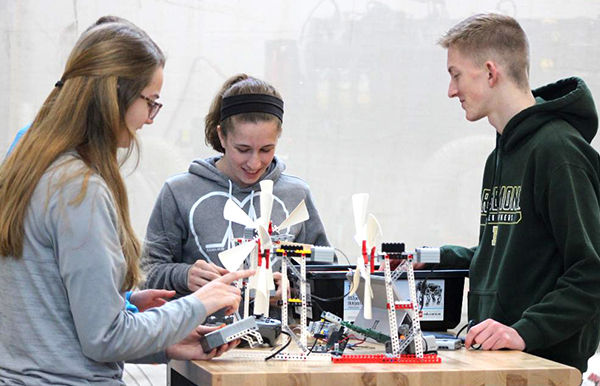
Today’s youth are the future of the agricultural industry – after all, they will be the ones uncovering solutions to feed a growing world population while stewarding our natural resources.
So how can we get the next generation excited about ag? Read on to find out how three unique organizations are doing just that.
Ag in the classroom (and beyond)
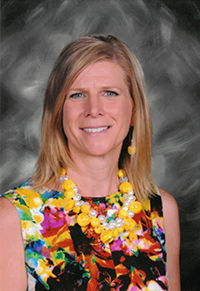
At Ridgemont Schools in Mt. Victory, Ohio, students are exposed to an agricultural curriculum even before they enter high school. Although this tiny school – each graduating class is less than 40 students – is rural, many students don’t know how their food is grown.
Thanks to a resource in Ohio called GrowNextGen, students of all ages and classroom settings have an opportunity to learn about farm production through the lens of those who live and breathe agriculture every day.
GrowNextGen, which is backed by funding from the Ohio Soybean Council and Ohio soybean farmers, is an online resource that enables industry leaders, teachers and students to work together to provide information, solve problems and engage with one another. According to its website, it has reached more than 20,000 teachers and 500,000 students to date.
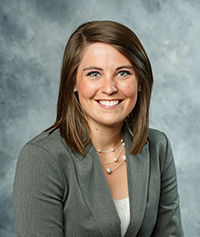
“A lot of the resources (through GrowNextGen) link back to a specific career in agriculture that students might not even know exists,” said Shelby Faulkner, an agricultural instructor at Ridgemont Schools who has been teaching for three years.
Faulkner works alongside Stephanie Jolliff, who brings 23 years of teaching experience to the classroom at Ridgemont Schools. The teachers use this resource frequently in and out of the classroom.
Jolliff said youth engagement happens in both places, and it’s wonderful to see students become advocates for agriculture — due to project-based and service learning — in a real-world setting.
Faulkner added, “When you tie in advocacy, students own their education.”
Ag in an academy setting

Established in 2016, the Sankofa Farms Agricultural Academy, located in Durham and Orange County, North Carolina, helps inner-city African American youth learn about local food systems through hands-on experience growing fruits, vegetables, eggs and honey. Students use what they grow to feed people locally.
Sankofa Farms was founded by CEO Kamal Bell, who said he has witnessed success engaging and exposing youth to agriculture in small group settings. Even if the academy’s students choose not to stick with the program, the seed has been planted in their minds about the importance of food production.
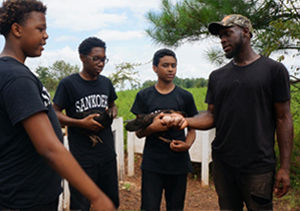
"I try to incorporate many things — from production to the science behind it,” Bell said. “Exposing youth to agriculture is something we have the responsibility to do.”
The academy is Bell’s way of giving back to his community. He didn’t grow up learning about agriculture firsthand, but he found his passion for the industry in college, later serving as an agricultural instructor.
Kamoni King, age 16, said his participation in the academy has allowed him to learn about anything ranging from beekeeping – all students become certified beekeepers – to working on the farm’s infrastructure and with the land. He is interested in animal genetics and hopes to pursue a career in that area, mainly due to his academy experience.
“Sankofa has given me purpose in life to get up and to know that I’ve helped the world in some way,” King said.
Ag in grassroots development
Education is a main focus at Carmel, California-based Carmel Honey Company, which began as a fifth-grade student assignment for then 11-year-old Jake Reisdorf and transitioned into a business. The company now sells honey and honeycomb, bath and body items, custom gift sets, clothing and hats, and hosts honey tastings. The company supports honey and bee research with a monetary donation every year, based on the company proceeds.
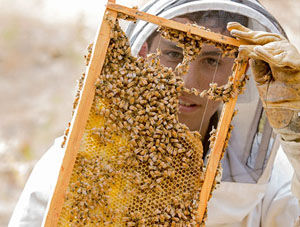
In the two years the store has been open, Reisdorf said he’s seen kids come in and get excited about beekeeping. They also appreciate the complexities of bees, learning about the 350 different types of honey in the United States and the entire community that exists around bees and beekeeping.
Reisdorf said he likes the beekeeping work and wants to continue down that career path in the future, which shouldn’t be difficult for the already savvy businessman: What started as one hive grew to more than 150 hives.
Beyond Carmel Honey Company, Reisdorf works to educate others in the community about the importance of bees, as well. Topics may include what allows bees to thrive, plants and planting methods best for bees and halting use of pest control methods that may be harmful to bees.
“Getting the word out about bees and agriculture in general is what my company is and what it’s built around,” Reisdorf said. “I also learn more when I talk to farmers I’m working with and collecting the honey from their plants. It’s all an interconnected society. I tell young people you can do anything you want to do in agriculture.”